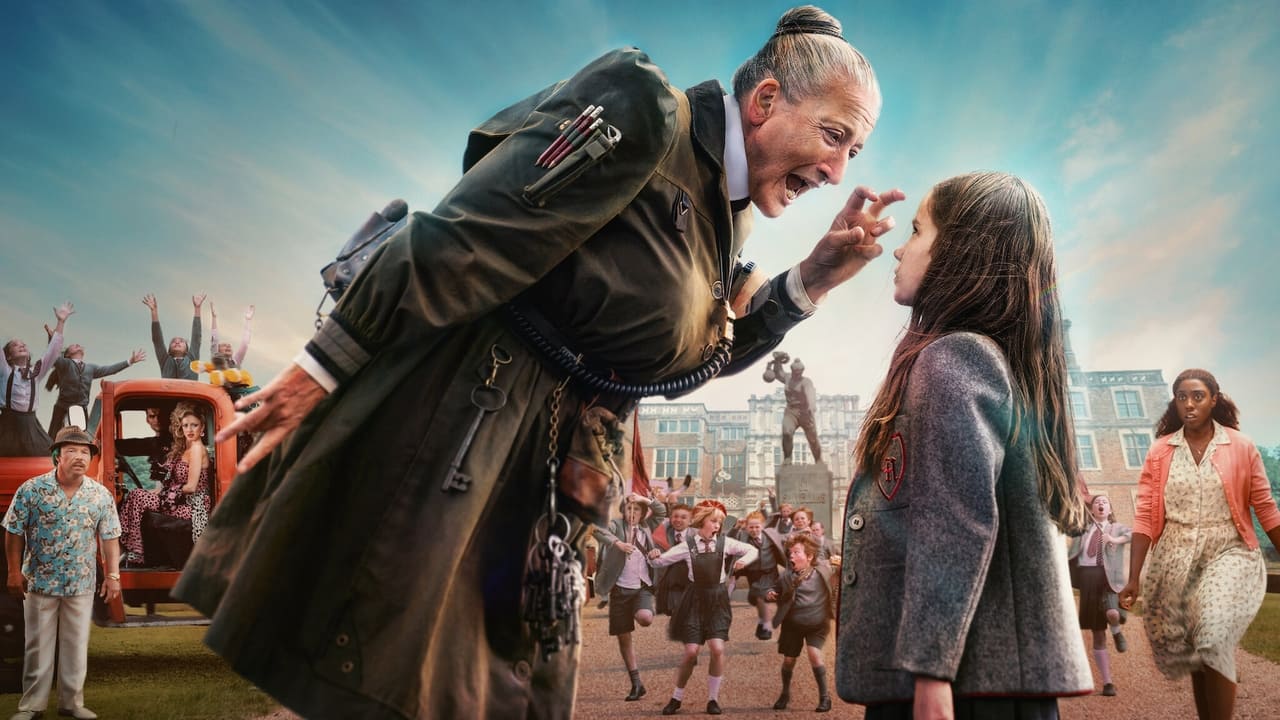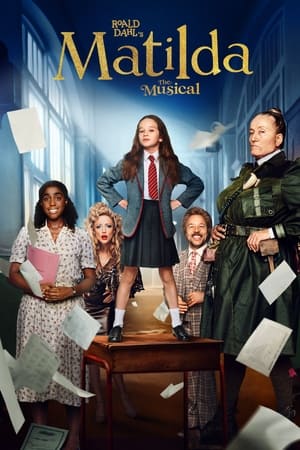
Waltzing Matilda
There's always something fascinating and strange about when an established film property is given new life as a stage musical and that musical eventually wends its way back to the screen. We're here to talk Matilda the Musical (with music and lyrics by Tim Minchin and book by Dennis Kelly, also on screenwriting duty) so obviously that film property in question - 1996's Matilda - is in and of itself an adaptation, of Roald Dahl's 1988 children's book of the same name.
As such, you probably know the story. A brilliant young girl named Matilda (Alisha Weir) is born to the ungrateful low-class slobs Mr. and Mrs. Wormwood (Stephen Graham and Andrea Riseborough) and thus lives a life of misery and torment as they don't appreciate her capacity for learning and love of books. She is eventually sent to Crunchem Hall, a school run by the bullying Agatha Trunchbull (Emma Thompson), who squashes any and all attempts by the lovely but spineless Miss Honey (Lashana Lynch) to nurture her aptitude. Eventually Matilda learns that her immense brainpower also makes her telekinetic, and she uses that skill to foment rebellion against The Trunchbull.

Matilda the Musical opens promisingly, if oddly, with a musical number partially sung by the babies in a hospital wing celebrating the miracle of birth (eventually juxtaposed with the Wormwoods' more sour take on same, naturally), taking place in a pastel-drenched hospital ward that feels ripped straight from the pages of a children's picture book. This will be the last time that the film is quite so visually inventive, though I don't quite think there's a way to bring Crunchem Hall to life that doesn't involve the institutional slate greys utilized here, so we can cut the production designer a little slack.
Unfortunately, the numbers that attempt to turn Crunchem into an abstract, Chicago-style dream space almost universally fail, reliant as they are upon oodles of questionable CGI (with the definite exception of the Bruce Bogtrotter cake-eating number, which uses a spinning set to great effect in highlighting the nausea of the character). The film fares much better when it pares down the Crunchem Hall sequences and allows its performers to shine, particularly the ensemble of preternaturally talented children (as always, the best special effect is people who are really fucking good at the thing they do) and Emma Thompson, whose full-throated character-singing as The Trunchbull sometimes gives way to quite an impressive belt.

Every time the movie shines, it's in a musical number, though they were not all created equal. Highlights include the Sondheimian villain number "The Smell of Rebellion," the playful alphabet-inspired "School Song," and Matilda's first song "Naughty," which I would call an "I Want" song if Matilda had any real character arc to speak of. It's more of a "Here's What I Already Am And Will Continue to Be" song. One other lovely number, "When I Grow Up," unfortunately highlights the film's major problem, which is its complete and total inability to structure and pace a narrative, part of which is natural for this type of adaptation (Act II openings don't ever read quite as well without an intermission), though I'd be hard pressed to understand why some songs were placed where they are, even onstage.
For instance, every time Miss Honey opens her trap to sing, she provides a lovely little warbling interlude of calm at the exact moment it would absolutely murder the pacing of an already bloated two-hour film. Especially in the second act, there's no sense of why events are happening in the particular order in which they are presented. They're indifferently slotted in as if they're interchangeable, and the resulting mess is emotionally hollow. For instance, The Trunchbull's infamous iron maiden for children known as The Chokey is meant to be a threat that looms over the entire film, but before Matilda destroys it in an act of defiance, it has only ever been glimpsed once from about 20 feet away and never seen in use (this seems like a particularly toothless note from Netflix, who I suppose don't realize that children's films are supposed to be slightly terrifying). Ditto the threat of Phys Ed, which is mentioned early on but doesn't come into play until over an hour into the movie.
Unfortunately, the whole film is like this, skating past any sort of moment that could build character or stakes because they assume you have already read or seen a version of Matilda (a probably correct assumption, but still). Just because a story has been told well before doesn't mean you shouldn't try, and everything they add to the source material is to its detriment, including a hopelessly extended set of storytelling sequences that are meant to evoke the vibrant imagination of a child but only succeed in being fabulously boring.

They don't even nail the development of Matilda's telekinetic powers! Matilda the Musical forgets about this element of the story for exceedingly long stretches, and when it does come into play it's always slathered in CGI that seems to have been rendered to capture that authentic 1996 feel. The way this film revels in its worst instincts is exemplified by the final confrontation with The Trunchbull, which has been pointlessly transformed into a giant CGI monster action setpiece that crushes the film under its unnecessary hugeness.
At the end of the day, it was interesting to see how they turned Matilda into Matilda the Musical. And The Musical ain't that bad! Unfortunately, in order to properly stuff Matilda with songs, they hollowed out everything important that made it an enduring classic to begin with.
Brennan Klein is a millennial who knows way more about 80's slasher movies than he has any right to. He's a former host of the Attack of the Queerwolf podcast and a current senior movie/TV news writer at Screen Rant. You can find his other reviews on his blog Popcorn Culture. Follow him on Twitter or Letterboxd, if you feel like it.
As such, you probably know the story. A brilliant young girl named Matilda (Alisha Weir) is born to the ungrateful low-class slobs Mr. and Mrs. Wormwood (Stephen Graham and Andrea Riseborough) and thus lives a life of misery and torment as they don't appreciate her capacity for learning and love of books. She is eventually sent to Crunchem Hall, a school run by the bullying Agatha Trunchbull (Emma Thompson), who squashes any and all attempts by the lovely but spineless Miss Honey (Lashana Lynch) to nurture her aptitude. Eventually Matilda learns that her immense brainpower also makes her telekinetic, and she uses that skill to foment rebellion against The Trunchbull.
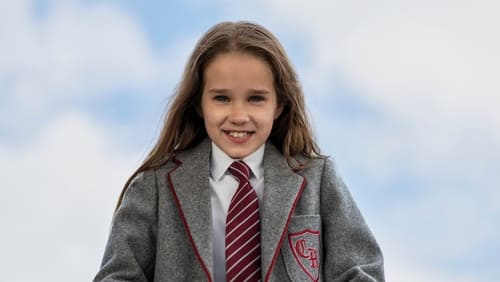
Matilda the Musical opens promisingly, if oddly, with a musical number partially sung by the babies in a hospital wing celebrating the miracle of birth (eventually juxtaposed with the Wormwoods' more sour take on same, naturally), taking place in a pastel-drenched hospital ward that feels ripped straight from the pages of a children's picture book. This will be the last time that the film is quite so visually inventive, though I don't quite think there's a way to bring Crunchem Hall to life that doesn't involve the institutional slate greys utilized here, so we can cut the production designer a little slack.
Unfortunately, the numbers that attempt to turn Crunchem into an abstract, Chicago-style dream space almost universally fail, reliant as they are upon oodles of questionable CGI (with the definite exception of the Bruce Bogtrotter cake-eating number, which uses a spinning set to great effect in highlighting the nausea of the character). The film fares much better when it pares down the Crunchem Hall sequences and allows its performers to shine, particularly the ensemble of preternaturally talented children (as always, the best special effect is people who are really fucking good at the thing they do) and Emma Thompson, whose full-throated character-singing as The Trunchbull sometimes gives way to quite an impressive belt.
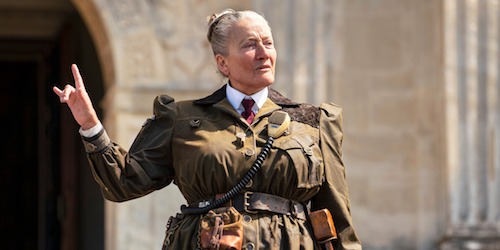
Every time the movie shines, it's in a musical number, though they were not all created equal. Highlights include the Sondheimian villain number "The Smell of Rebellion," the playful alphabet-inspired "School Song," and Matilda's first song "Naughty," which I would call an "I Want" song if Matilda had any real character arc to speak of. It's more of a "Here's What I Already Am And Will Continue to Be" song. One other lovely number, "When I Grow Up," unfortunately highlights the film's major problem, which is its complete and total inability to structure and pace a narrative, part of which is natural for this type of adaptation (Act II openings don't ever read quite as well without an intermission), though I'd be hard pressed to understand why some songs were placed where they are, even onstage.
For instance, every time Miss Honey opens her trap to sing, she provides a lovely little warbling interlude of calm at the exact moment it would absolutely murder the pacing of an already bloated two-hour film. Especially in the second act, there's no sense of why events are happening in the particular order in which they are presented. They're indifferently slotted in as if they're interchangeable, and the resulting mess is emotionally hollow. For instance, The Trunchbull's infamous iron maiden for children known as The Chokey is meant to be a threat that looms over the entire film, but before Matilda destroys it in an act of defiance, it has only ever been glimpsed once from about 20 feet away and never seen in use (this seems like a particularly toothless note from Netflix, who I suppose don't realize that children's films are supposed to be slightly terrifying). Ditto the threat of Phys Ed, which is mentioned early on but doesn't come into play until over an hour into the movie.
Unfortunately, the whole film is like this, skating past any sort of moment that could build character or stakes because they assume you have already read or seen a version of Matilda (a probably correct assumption, but still). Just because a story has been told well before doesn't mean you shouldn't try, and everything they add to the source material is to its detriment, including a hopelessly extended set of storytelling sequences that are meant to evoke the vibrant imagination of a child but only succeed in being fabulously boring.
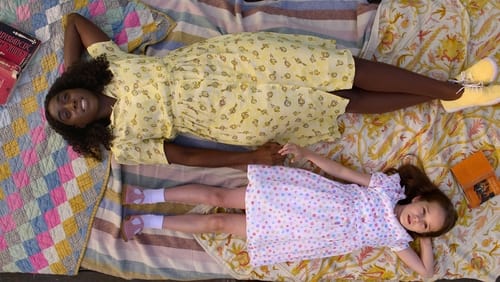
They don't even nail the development of Matilda's telekinetic powers! Matilda the Musical forgets about this element of the story for exceedingly long stretches, and when it does come into play it's always slathered in CGI that seems to have been rendered to capture that authentic 1996 feel. The way this film revels in its worst instincts is exemplified by the final confrontation with The Trunchbull, which has been pointlessly transformed into a giant CGI monster action setpiece that crushes the film under its unnecessary hugeness.
At the end of the day, it was interesting to see how they turned Matilda into Matilda the Musical. And The Musical ain't that bad! Unfortunately, in order to properly stuff Matilda with songs, they hollowed out everything important that made it an enduring classic to begin with.
Brennan Klein is a millennial who knows way more about 80's slasher movies than he has any right to. He's a former host of the Attack of the Queerwolf podcast and a current senior movie/TV news writer at Screen Rant. You can find his other reviews on his blog Popcorn Culture. Follow him on Twitter or Letterboxd, if you feel like it.
Categories: childhood trauma, musicals, needless remakes, netflix originals

